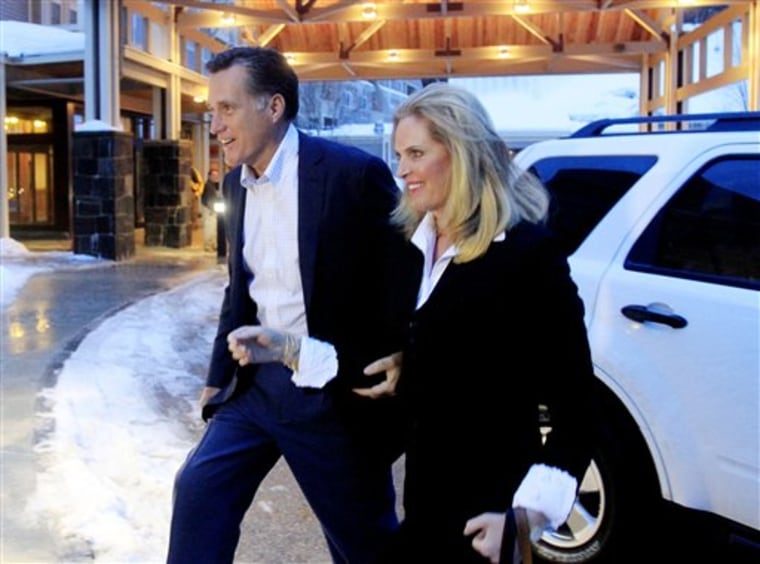Mitt Romney’s religion — not his frequently parsed Massachusetts record on health care reform — is the biggest threat to his front-running status in the GOP presidential primary, a former top adviser said on Tuesday.
Carl Forti, Romney’s deputy campaign manager and political director in 2008, told the National Journal Insiders Conference that the yet-undeclared candidate in 2012 will face prejudice because of his Mormonism.
“It’s not something you can test. It’s not something you can poll,’’ Forti said after a bipartisan panel at the Grand Hyatt in Washington handicapped the 2012 field. “There’s just a bias out there.’’
Democratic pollster Mark Mellman agreed, calling it “the last acceptable social prejudice.’’
Romney’s political committee did not immediately respond.
Mormonism is viewed as a cult by some evangelicals, who wield considerable influence in GOP primaries. Romney gave a major speech addressing his religion in 2007 and wants to focus his 2012 campaign on the struggling economy, playing to his strengths as a successful corporate executive.
But the former Massachusetts governor’s health care record could be a major stumbling block. It included an “individual mandate’’ for people to buy insurance so that the healthy and the sick alike share costs. That’s also the linchpin of the legislation passed by Congress last year that GOP leaders are trying to repeal.
Romney agrees with the repeal effort and draws a distinction between “Obamacare’’ and his state-level initiative.
In a new poll of National Journal Political Insiders, Republicans rated Romney their party's most likely nominee, followed by Tim Pawlenty, the former Minnesota governor, who recently launched an exploratory committee. Sarah Palin, the former vice presidential nominee who has not revealed her plans for 2012, has dropped to ninth place.
Rep. Michele Bachmann of Minnesota scored even lower in the survey, despite receiving enthusiastic receptions by Iowa voters in recent weeks. Both Palin and Bachmann are known for making provocative, headline-grabbing remarks, and whether they will run for president is one of the biggest questions looming over the race.
“I don’t think there’s space in the electorate for both of them,’’ said Sara Fagen, a top Pawlenty adviser who was White House political director under George W. Bush.
“If Palin or Bachmann is the nominee, Obama will win in a landslide,’’ longtime Democratic strategist Tad Devine predicted. “I don’t think either one of them under the scrutiny of a long campaign will survive that scrutiny and pass the threshold of credibility for president.’’
Obama’s biggest challenge, Devine said, is bringing back the “Obama electorate.’’ That’s a younger and much more diverse group of voters than the electorate that widely repudiated Democrats in 2010. The fast-growing Hispanic population, which favors Democrats, is key.
Fagen and Forti acknowledged that the GOP turned off many Hispanic voters with harsh rhetoric about immigration. Fagen’s former boss, President Bush, touted legislation that would have allowed illegal immigrants to earn citizenship, unleashing a fierce debate that is partly blamed for Republican losses in 2006 and 2008.
Forti, who now works as a consultant to American Crossroads, a fundraising powerhouse for conservative Republicans, said that the GOP could also run into problems if it continues to push for Social Security reform. Several potential GOP contenders have been calling for Congress to reduce the costs of entitlements, such as Social Security and Medicare, to help close the federal deficit. As a lifeline for many older and dedicated voters, Social Security was long considered politically untouchable.
“No one believes that the government will let Social Security go bankrupt,’’ Forti said. “It’s hard to articulate a solution until you have sold the problem.’’
Hagen disagreed. She argued that the time is right for politicians to take on an issue that long has been regarded as the third rail of American politics. Bush couldn’t even get a hearing on Social Security in a GOP-controlled congressional committee, Hagen noted. But now, she said, “I think the country expects it.’’
The article, "Ex-Adviser: Romney Faces Religious Bias," first appeared in the National Journal.
